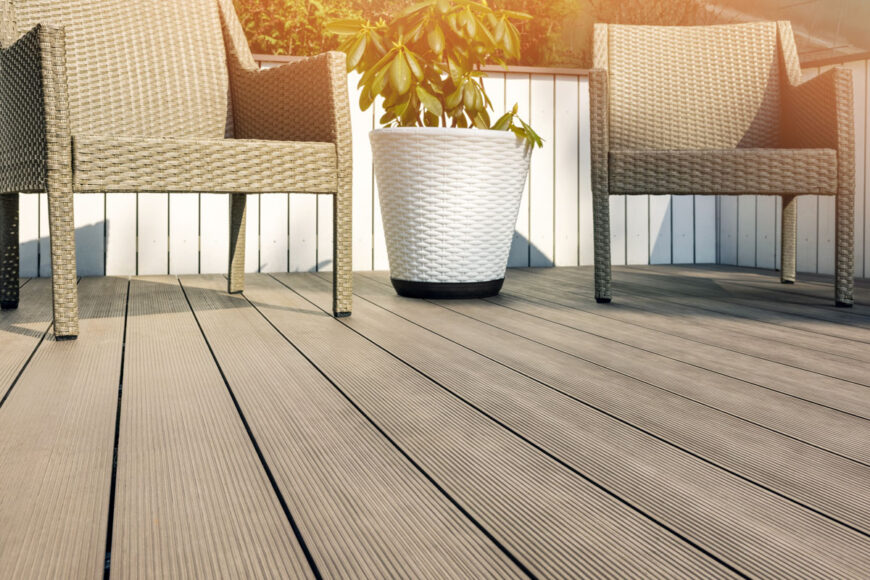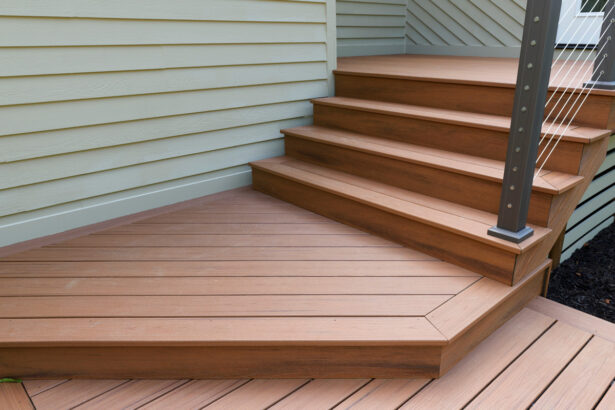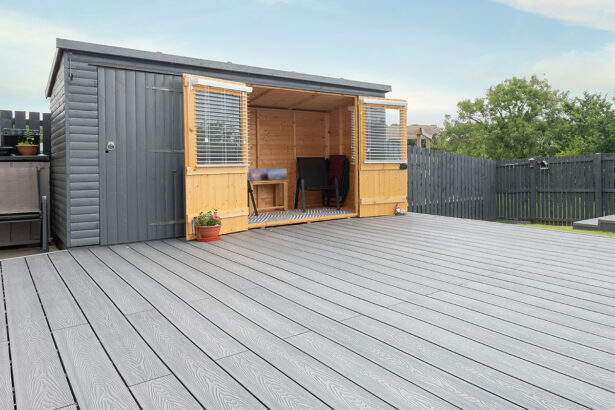Eco-Friendly and Sustainable: The Benefits of Composite Decking

In the quest for more environmentally-friendly building materials, composite decking has emerged as a frontrunner. This innovative decking solution not only addresses the ecological concerns associated with traditional wood decking but also offers a sustainable and aesthetically pleasing alternative. Let’s delve into the multifaceted benefits of composite decking.
Composition of Composite Decking
Composite decking boards are crafted from a blend of recycled wood fibres and plastics. This fusion capitalises on the strength of wood while harnessing the durability of synthetic materials. The wood used often comes from reclaimed sources, reducing the need for fresh timber and aiding in forest conservation. The plastics are typically sourced from recycled products, further contributing to waste reduction.
Environmental Benefits
Reduced Deforestation
One of the most significant environmental impacts of composite decking is its role in diminishing deforestation. By utilising recycled wood, it lessens the demand for new timber, thereby preserving our vital forest ecosystems.
Recycling and Waste Reduction
Composite decking’s reliance on recycled materials plays a crucial role in waste management. By repurposing plastics that would otherwise end up in landfills, it contributes to a more sustainable cycle of resource use.
Durability and Longevity
Unlike traditional wood, composite decking is known for its longevity and resistance to weathering, rot, and pests. This durability means decks need to be replaced less frequently, conserving resources and reducing waste over time.
Sustainability in Production
The production of composite decking often incorporates energy-efficient practices. Many manufacturers are committed to low-emission processes, further reducing the environmental footprint of these products.
Maintenance and Lifecycle Impact
Low Maintenance Needs
Composite decking requires minimal upkeep compared to traditional wood decking. There’s no need for annual staining, sealing, or painting, reducing the use of potentially harmful chemicals and the associated labour.
Lifecycle Analysis
When considering the entire lifecycle, from production to disposal, composite decking has a significantly lower environmental impact. Its long life and recyclability at the end of its use period make it an eco-conscious choice.
Economic Benefits Alongside Environmental Ones
While the initial cost of composite decking may be higher than traditional wood, its longevity and low maintenance requirements make it a cost-effective solution in the long term.
Design Flexibility and Aesthetic Appeal
Today’s composite decking comes in a variety of styles and colours. This versatility means that choosing an eco-friendly option doesn’t limit your design choices; in fact, it enhances them.
Conclusion
Composite decking stands out as an eco-friendly and sustainable choice for those looking to reduce their environmental impact without compromising on quality and aesthetics. Its benefits extend beyond just the environment, offering a durable, low-maintenance, and stylish solution for any outdoor space.
Interested in learning more about sustainable decking solutions? Visit our blog for a deeper dive into the benefits of composite decking and to explore our range of environmentally friendly options.


